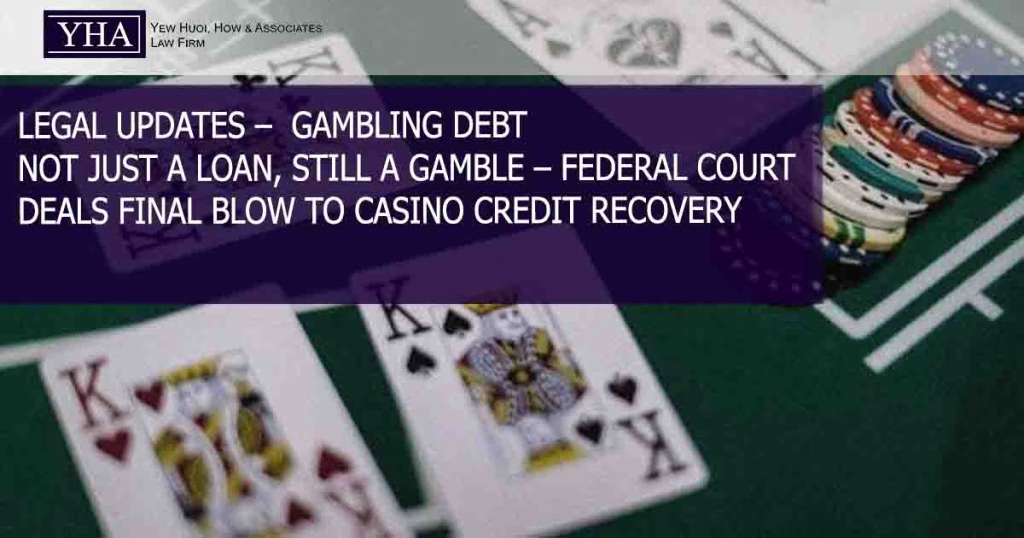1. Summary and Facts
In Dato’ Ting Ching Lee v Ting Siu Hua [2025] 2 MLJ 295, Dato’ Ting Ching Lee (the appellant) filed a defamation suit after being accused, alongside others, of owing gambling debts published in a local Chinese-language newspaper and on social media. The defendant, Ting Siu Hua, a tour agent and casino junket operator, counterclaimed for repayment of USD1.5 million in gambling credit lines and a USD193,800 rolling rebate granted to the appellant for gambling at Naga Casino in Cambodia.
The High Court dismissed both the defamation and the counterclaim, holding that the credit facilities amounted to unenforceable gambling debts. However, the Court of Appeal reversed the decision on the counterclaim, classifying the credit lines as loans and allowing recovery. The matter proceeded to the Federal Court.
2. Legal issues
i. Whether the credit facilities granted to the appellant constituted a gambling debt or a recoverable loan.
ii. Whether such a claim is enforceable under Malaysian law, particularly in light of s 26 of the Civil Law Act 1956 and ss 24 & 31 of the Contracts Act 1950.
iii. Whether the Court of Appeal had erred in separating the credit transaction from the gambling activity.
iv. Whether Malaysian courts should adopt a ‘composite contract’ approach in evaluating such arrangements.
3. Court Findings
• The Federal Court unanimously allowed the appeal, restoring the High Court’s decision.
• The court held that credit facilities given to purchase gambling chips are not genuine loans, but part and parcel of a composite gambling contract, which is null and void under:
i. Section 26 of the Civil Law Act 1956, and
ii. Sections 24 and 31 of the Contracts Act 1950.

